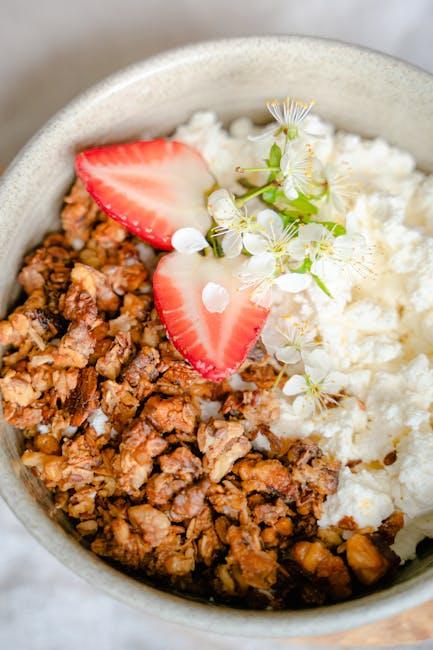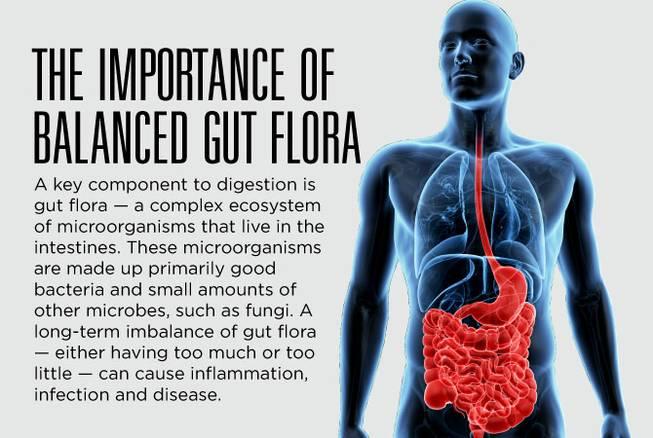In the intricate tapestry of human health, there exists a complex and often overlooked ecosystem thriving within us: the gut. This dynamic world, teeming with trillions of microorganisms, holds the key to much more than just digestion. Recent scientific discoveries have unveiled the gut as a crucial player in our overall well-being, influencing everything from our immune system to our mental health. invites us to explore this hidden universe, where balance and diversity are paramount. As we embark on this journey, we uncover the profound impact that nurturing our gut can have on our lives, opening new avenues for health and vitality.
The Microbiomes Role in Overall Well-being
Our bodies are bustling ecosystems, and the gut microbiome plays a pivotal role in this complex symphony. This community of trillions of microorganisms, including bacteria, fungi, and viruses, is not just a passive resident; it actively influences our immune system, digestion, and even our mental health. Recent studies suggest that a diverse and balanced microbiome can contribute to reducing inflammation, improving mood, and enhancing the body’s ability to absorb nutrients.
- Immune Support: The microbiome communicates with our immune system, teaching it to differentiate between friend and foe.
- Mood Regulation: Gut bacteria produce neurotransmitters like serotonin, often dubbed the ”happy chemical.”
- Digestive Health: A healthy microbiome aids in breaking down food and absorbing vital nutrients.
Incorporating a diet rich in prebiotics and probiotics, reducing stress, and staying active can support a thriving gut microbiome, thus promoting overall well-being. This intricate relationship between our gut and overall health is a testament to the body’s remarkable interconnectedness.

Nutritional Strategies to Support a Healthy Gut
Maintaining a balanced diet is key to nurturing a thriving microbiome. Incorporate a variety of fiber-rich foods such as fruits, vegetables, whole grains, and legumes. These not only support digestion but also act as prebiotics, feeding the beneficial bacteria in your gut. Fermented foods like yogurt, kefir, sauerkraut, and kimchi are excellent choices to introduce probiotics, which help in maintaining the equilibrium of your gut flora.
Another critical aspect is staying hydrated. Adequate water intake aids digestion and the absorption of nutrients. Additionally, limit the consumption of processed foods and sugars, which can disrupt the balance of gut bacteria. Instead, focus on incorporating healthy fats from sources like avocados, nuts, and olive oil. These can help reduce inflammation and promote a healthier gut environment. By following these strategies, you can support a balanced and healthy digestive system.
Recognizing Symptoms of an Imbalanced Gut
Our digestive system is a complex ecosystem, and when it’s out of balance, the signs can be surprisingly diverse. From unexpected fatigue to skin irritations, the body’s signals are often subtle yet telling. Common symptoms of an imbalanced gut include:
- Persistent bloating and gas
- Frequent diarrhea or constipation
- Unexpected weight changes
- Chronic bad breath
- Food intolerances and allergies
These symptoms may not always be directly associated with digestive issues, which can make identifying the root cause a challenge. However, paying attention to these signs is crucial. Listen to your body, and consider consulting a healthcare professional if you notice these patterns. By addressing gut imbalances early, you can pave the way for better overall health and well-being.

Incorporating Probiotics and Prebiotics into Your Diet
Our gut is home to a vast community of microorganisms that play a pivotal role in our overall health. To nurture this delicate ecosystem, incorporating both probiotics and prebiotics into your diet can be highly beneficial. Probiotics are live bacteria that help maintain a healthy balance of gut flora. They can be found in foods like:
- Yogurt
- Kefir
- Sauerkraut
- Kimchi
- Miso
On the other hand, prebiotics are non-digestible fibers that serve as food for these beneficial bacteria, helping them thrive. You can boost your prebiotic intake by consuming:
- Bananas
- Garlic
- Onions
- Asparagus
- Whole grains
Balancing both probiotics and prebiotics not only enhances digestion but also fortifies the immune system, making it a cornerstone of maintaining optimal gut health.
Insights and Conclusions
As we conclude our exploration into the intricate world of gut health, it’s clear that this often-overlooked aspect of our well-being is anything but trivial. The gut, a bustling metropolis of microorganisms, holds sway over not just our digestive processes, but also our mental and emotional states, immune system, and overall vitality. By nurturing this internal ecosystem with mindful dietary choices, stress management, and perhaps a touch of curiosity, we can unlock a path to a healthier, more balanced life. As the journey to understanding gut health continues, let us remain attentive to the whispers of our bodies, ready to embrace the profound connection between our inner worlds and the broader tapestry of our health.


































